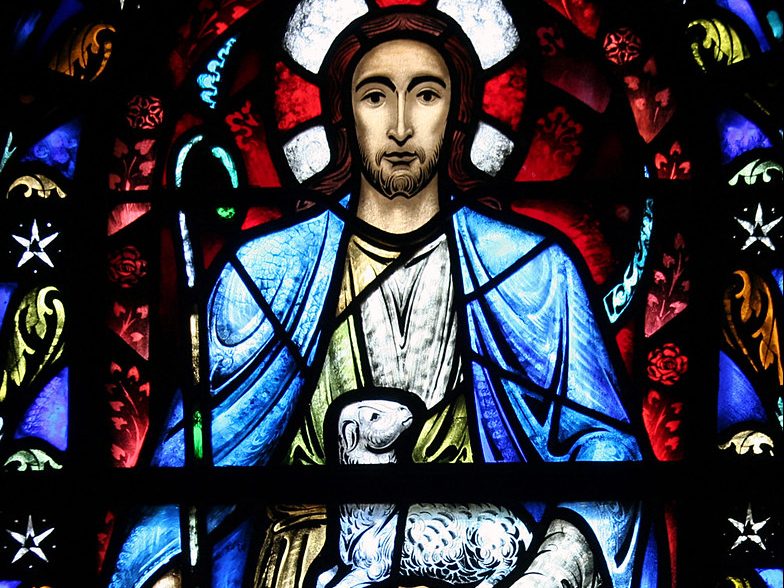My college roommate Nadine was a Pentecostal Protestant. She read her Bible for an hour faithfully every night after classes and before tackling her other assignments. I marveled at her fidelity to a book that I, a Catholic with 12 years of parochial schooling behind me, had never opened.
I did own a Bible. It had been a high school graduation gift from my older sister. It sat on the shelf above my dorm desk. In my late teens, the Bible was more a token of the relationship I had with my sister than any communion I enjoyed with my God. I envied Nadine’s sense of devotion to the sacred texts. Just not enough to open the Bible and start reading it myself.
In late-night dorm conversations, however, it was Nadine’s turn to be impressed. No matter what topic surfaced in our wide-ranging sessions—policy issues of the day, military actions, sexuality, the influence of media, ecology—I confidently held forth with what Nadine called Very Clear Opinions on everything. “They’re not opinions,” I assured her. “It’s Catholic social teaching.”
“But you always know what to say!” she gasped, astonished. “I’ve never thought about half of these issues, and you seem to think about everything.” Ah, if only I could claim that I was thinking! Rather, I was simply parroting what 12 years of religion classes had drilled into me.
In hindsight, I’ve come to understand we were both missing something crucial in our naïve college days. Nadine was sincerely dedicated to scripture but rarely ventured to make connections between the verses she was memorizing and the cauldron of world events around us. I was chock full of Catholic Answers to contemporary questions. But those airtight answers left little space for the nuances that emerge whenever human beings are involved.
Don’t get me wrong. Whether sourced from catechism, encyclical, or modern theological text, the Catholic Answer remains a great resource. I highly recommend studying it, and as a catechist of the church I certainly teach it. But four decades beyond my college days, experience has revealed that memorizing catechism answers is no more helpful than reciting scripture verses if isolated from the rich context of our life and times. Knowing the answer does us little good, in fact, if we’re not asking the right question.
In the gospel record, questions are a vital part of the story. Teachers and others bring their often academic or sterile inquiries to Jesus: What must I do to inherit eternal life? What is the greatest commandment? Is it lawful to pay taxes to Caesar? Why do your disciples not fast? Why do they pick grain on the Sabbath? Why do they not purify their hands before eating? Are you a king? What is truth?
Even when the question has an immediate and practical urgency to it—“The law of Moses says to stone an adulteress: What say you, Jesus?”—it rings hollow without the personal investment of the interrogator. Such inquiries are archly designed to entrap the responder, not enlighten the inquirer. Starting from the wrong mindset, no liberating answer is likely.
A seeker will ask other questions. Take, for example, the magi on their long and costly mystical quest. They’ve made the investment of patient study, time, and resources. Arriving in Jerusalem, these men are prepared to ask the right question: “Where is the child born to be king of the Jews?” It’s the sort of open, hopeful question to which Jesus might reply with his usual invitation to discipleship: “Come and see!”
John the Baptist, another famed seeker, frankly asks Jesus what he needs to know on several occasions: “Why have you come to me to be baptized? I ought to be coming to you!” Or: “Are you the one who is to come? Or should we look for another?” Because he seeks clarity and direction, John will get the reply that actually helps him know what to do.
Even demonic spirits seem to have the good sense to ask appropriate questions: “What do you want with us, Jesus Son of God? Have you come to destroy us?” Um, that would be yes; but also and more pointedly, to free the suffering host.
Jesus asks questions too. They’re the kind that pierce to the heart of the matter: Why are you afraid? Aren’t you worth more than sparrows? Can worry make you live longer? Do you believe I can make you well? Why don’t you give the hungry crowds something to eat? Why do you doubt me, O you of little faith? Who do you say that I am? What profit is it to gain the world and lose your soul? Are you still sleeping and taking your rest?
When Jesus encounters two blind men, he asks simply, “What do you want me to do for you?” They reply with as much eager directness, “Lord, we want to see!” And so they do.
Asking the right question, clearly, has its advantages. The crowds around Jesus were rarely perceptive enough to know what that question might be. Instead, they wondered about worldly matters, rooted in gossip and glimmers of self-interest: Could Jesus be the Son of David, meant to restore Israel to greatness? But wait, isn’t he the carpenter’s son, nothing special? If he were a prophet, wouldn’t he know the sort of woman who is touching him?
Not much may be expected from crowds who came for the Jesus show while it was in town but returned home afterwards. The in-it-to-win-it disciples, however, should have been more discerning. Yet they were notorious for being quite dense, even after listening to Jesus teach day after day. They asked ego-driven questions, often with personal gain as their focus: Why couldn’t we cast out the demon in that boy? How many times should I forgive someone—is seven times enough? What will we get in return for giving up everything to follow Jesus? Can we sit on your left and your right in the coming kingdom? Why is this dubious woman wasting such expensive perfume in this conspicuous gesture? How much do I get if I hand Jesus over to you?
Questions of all kinds leap from the pages of the gospels: the pointed and the pointless, the sort to which a miracle is the best reply, as well as the rhetorical question that hangs in the air demanding a response composed of our very lives. These questions invite us to be the community that asks better questions, not merely the ecclesial authority swift to rattle off the final answer.
In this time when we’re captivated by the notion of making our country “great again,” there are some questions we should be asking: Great for what? Great for whom? For all of us or just some of us? Only for us? And who is “us”? Is greatness measured in wealth and advantage, prestige or military superiority? Or is greatness a matter of courage and compassion, the willingness to share and to help?
If we aren’t careful to ask the right questions, no matter which answers we arrive at, they are sure to be woefully inadequate.
This article also appears in the September 2017 issue of U.S. Catholic (Vol. 82, No. 9, pages 47–49).
Image: via Wikimedia Commons














Add comment